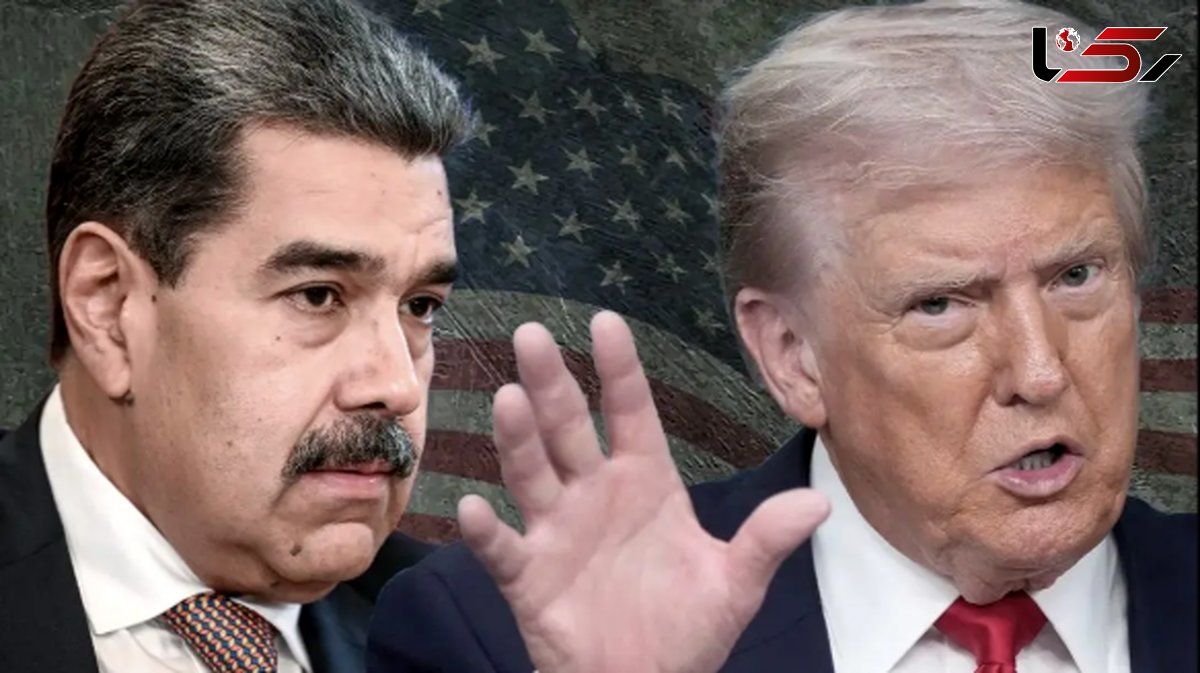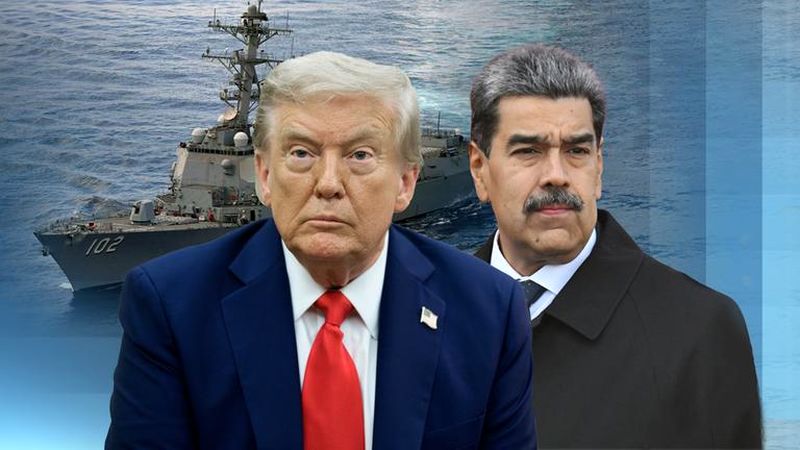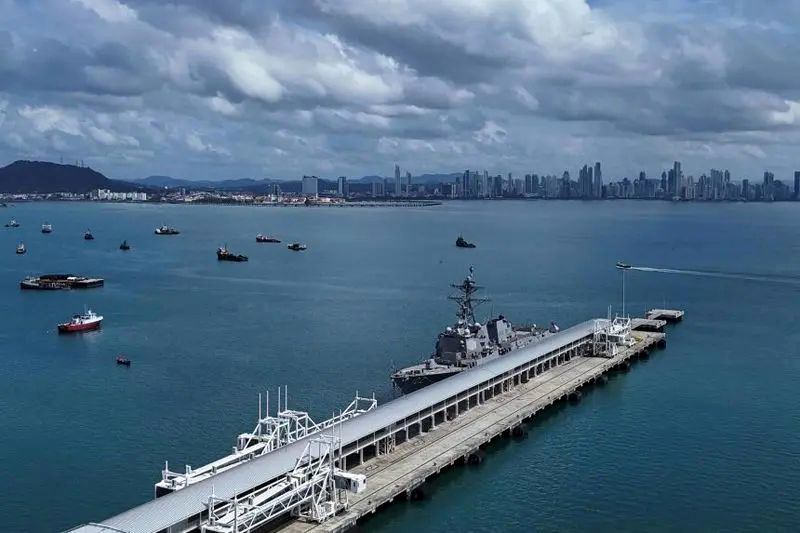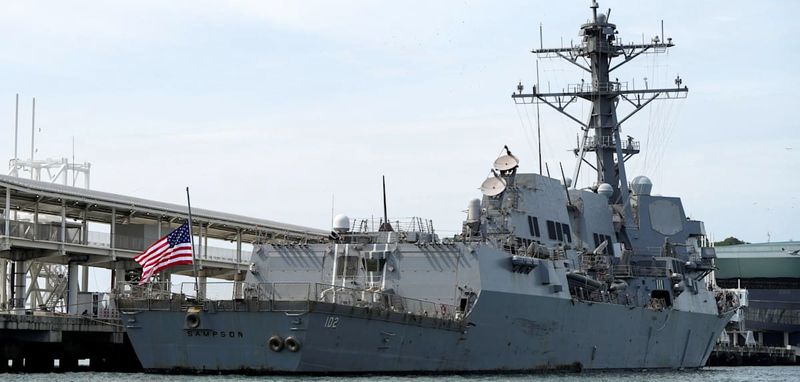Caribbean at the Center of Power Dynamics: Trump’s Explicit Message to Maduro
Rokna Political Desk: Rising tensions and a growing U.S. military presence in the Caribbean have escalated the crisis between the United States and Venezuela, raising questions about the possibility of a new confrontation. Meanwhile, Trump’s anti-cartel policies in Latin America have garnered support from certain countries, making the region highly sensitive to potential developments.

The atmosphere of U.S.-Venezuela relations remains clouded. Recent weeks have seen the deployment of multiple U.S. ships and aircraft to the region, with President Donald Trump reportedly sending at least 10 additional F-35 fighter jets to Puerto Rico. In addition, several ships equipped with Tomahawk cruise missiles, including a submarine, have been stationed nearby.
Since the early days of Trump’s presidency, it was predictable that tensions with Venezuelan President Nicolás Maduro would escalate. In early 2025, the Trump administration designated the Tren de Aragua and several other Venezuelan groups as “terrorist organizations.” Maduro himself was publicly labeled a “drug trafficker and terrorist,” with a $50 million reward announced for his capture.
The U.S. asserts that it is intensifying its fight against Latin American drug cartels, deploying several naval warships and over 2,000 Marines in the southern Caribbean. Reports indicate that the guided-missile destroyer USS Erie and the fast-attack nuclear submarine USS Newport News are also expected to arrive soon.

These measures come as the Trump administration increases pressure on Maduro, who has accused the United States of plotting to remove him from power. Trump has publicly characterized Maduro as the head of the Venezuelan cartel “Sanz.” When asked about potential direct military action, White House Press Secretary Caroline Leavitt stated: “President Trump has been very clear and consistent and is prepared to use every element of U.S. power to prevent drugs from entering our country and to punish those responsible.”
Analysts interpret these statements as a potential military threat toward Maduro. However, Latin America is no stranger to U.S. interventions and regime changes. Washington has historically supported both covert and overt operations in the region—from Chile to Brazil and Guatemala to Grenada—actions that reshaped governments during the second half of the 20th century. The current positioning of a U.S. submarine and guided-missile destroyer near Venezuelan waters has understandably heightened tensions.

Maduro has called on Venezuelan men and women to join nationalist militias, asserting: “No empire will set foot on Venezuela’s sacred soil.” Simultaneously, the Venezuelan navy has deployed warships and drones for coastal patrols. The key question remains: how long will the current situation persist, and what exactly is Trump’s strategy toward Venezuela?
While the significant U.S. military presence has prompted speculation about a potential attempt to remove Maduro through force, most analysts agree that a full-scale invasion is unlikely. The naval buildup is more likely intended to pressure Latin American governments to take stronger measures against drug traffickers.
Cracking down on transnational drug cartels has become a central pillar of Trump’s second term. Shortly after returning to power in January, he issued an executive order designating eight major cartels, including those based in Mexico and Venezuela, as foreign terrorist organizations. The White House stated that these cartels are “engaged in violence and terror across the Western Hemisphere,” threatening not only key countries but also the U.S. itself with lethal drugs and violent criminal networks.
Trump also signed a classified directive authorizing the Pentagon to act against these cartels, defended publicly by Secretary of State Marco Rubio, allowing the use of intelligence, defense, and other U.S. assets to target these groups. However, legal and political constraints make a direct military invasion of Venezuela unlikely. Any such action would violate regional sovereignty and risk breaching U.S. domestic and international law.
Historical precedent suggests Venezuela is not entirely secure. Past U.S. interventions in the region, such as the 1989 invasion of Panama to capture Manuel Noriega, demonstrate that targeted operations are possible even without large-scale invasions. While current U.S. forces in the Caribbean may be insufficient for a full ground offensive, special operations units could carry out precision missions from naval assets.
In response, Maduro has threatened “maximum retaliation” against any armed incursion. Following Venezuelan fighter jet patrols on Thursday, the Pentagon issued an implicit warning to the Venezuelan cartel to avoid obstructing U.S. anti-drug and counterterrorism operations.

Evidence suggests that even the threat of U.S. military intervention can influence regional policies. For example, the Mexican government has pledged cooperation with Washington on anti-drug operations, while Colombia has deployed 25,000 personnel to its border with Venezuela in response to Maduro sending 15,000 troops. Paraguay and El Salvador have publicly supported Trump’s anti-cartel stance.
If U.S. pressure continues effectively, Latin American countries may gradually align with Washington’s campaign against regional drug cartels.
Send Comments